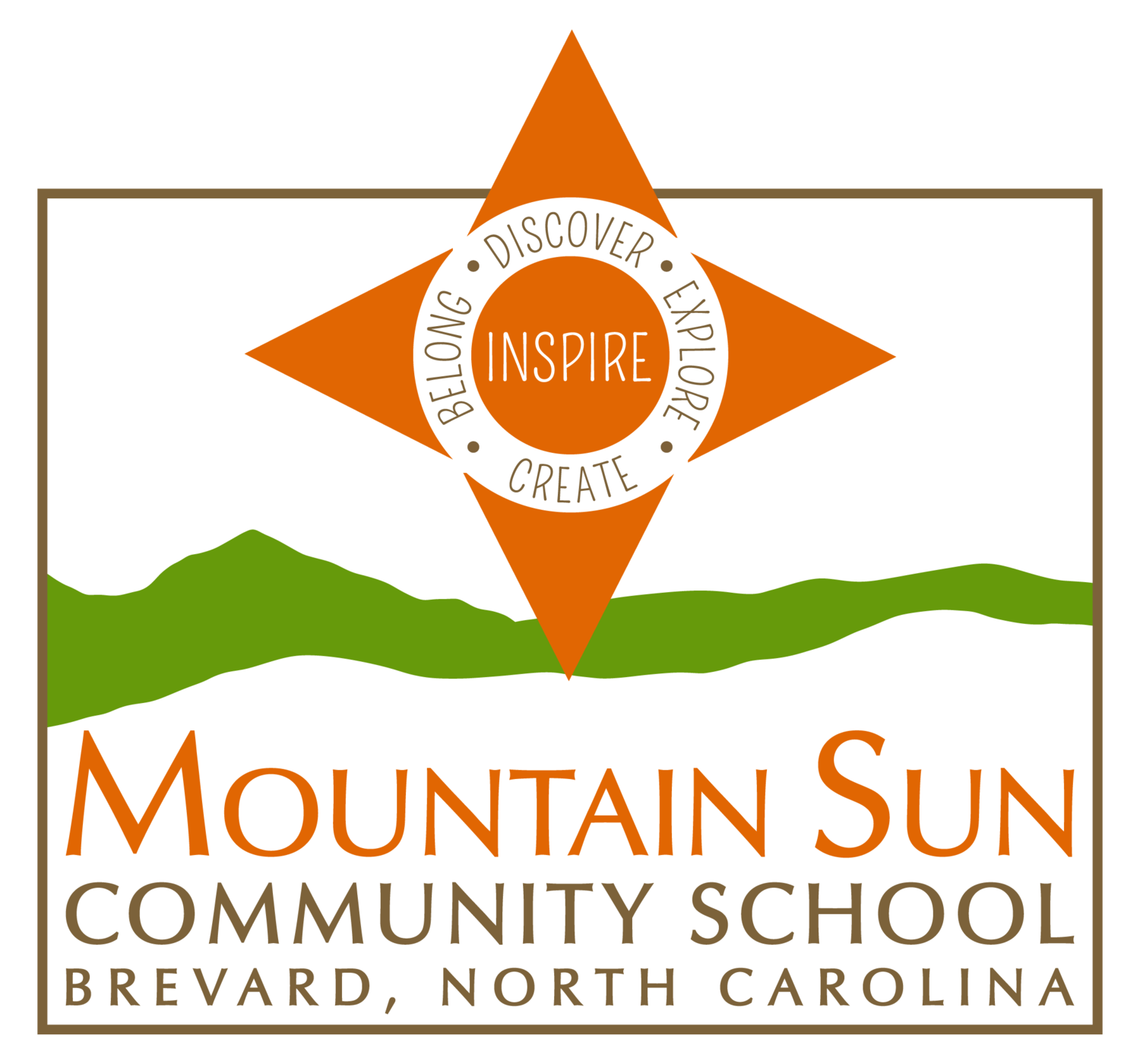An Acorn Philosophy
For me, one of the greatest parts of being a teacher at Mountain Sun Community School is that we are able to educate organically. The word “organically” has perhaps been reinvented many times, but in my opinion, it is the best way to describe how we teach the children in the Acorn class: we start with a direction and destination, then let our young children find the best route to get there.
Another way to look at it is that the lessons and learning begin as an intention or goal (seed), then the children bring the goals into fruition in unique and very active, living ways, keeping the work alive by adding their input (or nurturance). When complete, there is a new understanding and integration of the experience that constitutes deep learning (the flower), which then will inspire new learning (pollinate).
I stumbled upon the thoughts of Alfred North Whitehead (1861-1947), noted mathematician and philosopher, several years ago when I was trying to more fully understand my own teaching philosophy. I was certain that I wasn’t the first to make this connection. Sure enough, there are many thinkers well ahead of me! And while my educational experience didn’t necessarily formally name A.L. Whitehead, his ideas rose to the top when I began teaching.
Quoted from The Stanford Encyclopedia of Philosophy, “Whitehead emphasizes the importance of remembering that a ‘pupil’s mind is a growing organism…it is not a box to be ruthlessly packed with alien ideas.’ Instead, it is the purpose of education to stimulate and guide each student’s self-development. It is not the job of the educator simply to insert into his students’ minds little chunks of knowledge. Whitehead conceives of the student’s educational process of self-development as an organic and cyclic process.”
While to my knowledge, Dr. Maria Montessori never met A. L. Whitehead, I can imagine an esoteric discussion between the two, diving deep into the nuances of a child’s needs and purpose of education. Both are brilliant thinkers and I think they would find commonality in philosophy; Montessori offers materials that inspire, while Whitehead would encourage even more exploration. This is terrifically oversimplified, however I see a beautiful mesh of both of their ideas.
The way that A.L. Whitehead thought about education as having to be put into practice for it to be useful (called Process Philosophy) is easily applied to our Acorn learners. They are always being taught lessons to add to their already existing bank of experiences. While we guide what is on the table, they choose first and we follow their lead. Writing a research paper about Native Americans, for example, creates opportunities for reading to gather knowledge about a tribe, spelling to write what they want us to know, and grammar to effectively communicate the information. There are also lessons on organizing thoughts, how to find answers to questions, and production with a sense of ownership and pride, none of which has meaning to a child unless they are invested and involved in the subject matter.
I have been teaching for many years (20+ now) and very rarely do I teach a lesson the same way twice. I view each child is unique and therefore the class community is unique, so it follows that the lessons need to be unique, also. This keeps the classroom alive and active and very much serving the children where they are and with what they need. This may also explain the sustained enthusiasm of many Mountain Sun teachers!
I am always happy to pass along “facts” as the children ask, but one of the best answers I can give is, “Hmm...good question! May I show you a good way that we can find that answer together?” This engages the child more deeply in their quest for the information, thus hopefully inspiring them to integrate the knowledge in a way that helps them grow.
There is a wonderful quote from A. L. Whitehead to sum up what I see as an essential piece of the Mountain Sun educational experience: “We must beware of what I call ‘inert ideas’ — that is to say, ideas that are merely received into the mind without being utilized, or tested, or thrown into fresh combinations.” This asserts the value and importance of experiential learning as fundamental to our ever-changing collective.
Embracing the uniqueness of our children takes flexibility, creativity, and quite a bit of energy. In the end, I find the work beautifully challenging, inspiring, and fulfilling. I am always grateful to Mountain Sun for the opportunity to stretch myself while I continue to support and guide our young people.
Written by Brigid Fox



